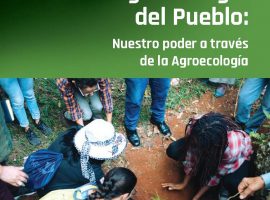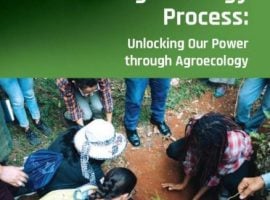The problem of hunger is complex, and the best solutions often tackle multiple issues at once. GrowingChange, a youth rehabilitation and community education project in North Carolina, is taking on high rates of youth incarceration, food insecurity in rural communities, veteran unemployment and access to quality education.

The idea seems simple: provide young people at risk of entering the criminal justice system with an alternative path by teaching them about sustainable agriculture. But GrowingChange is so much more than a youth rehabilitation program, bringing together the entire community around a common cause: sustainable and nutritious food. Together, they are transforming an abandoned prison into housing facilities for food production, education and community activities. GrowingChange has found that when you bring people together around something as fundamental as tending to the land, you can surface other community issues like nutrition, employment, education and environmental sustainability and find holistic solutions.
Young people can volunteer at GrowingChange and get hands-on experience with growing and harvesting produce, composting and even beekeeping. They are taught by returning veterans, who often struggle to find work. The food they produce is distributed through a CSA, at farmers markets, and to local businesses. Resulting revenue is used to sustain the program, making it financially self-sufficient. GrowingChange also welcomes students from nearby universities as interns and provides community amenities such as a museum and gallery spaces.
From 2018-2019, 371 youth were held in Youth Development Centers across North Carolina. Many of these centers are operating over their capacity and don’t provide adequate opportunities for education and self-development. In flipping an old prison, GrowingChange is replacing the traditional prison institution with a new model of rehabilitation, education and food production—a model that involves and benefits the wider community rather than focusing on isolation. “These formerly incarcerated young people were put in the position of leadership, to help us figure out the new question of what to do with old prisons,” says founder Noran Sanford to the News & Observer, “That puts them in a radically different position within the community.”
By rethinking our current food system and looking for alternative models of food production, we can help communities gain more regular access to healthy and nutritious food, provide education and employment opportunities where they are lacking, and create new and more effective ways to keep youth out of detention centers and in positions of leadership in their communities.
For more on the great work GrowingChange is doing, click here.
Want The ROOT Report in your email? Sign up today at www.whyhunger.org/TheROOTReport





